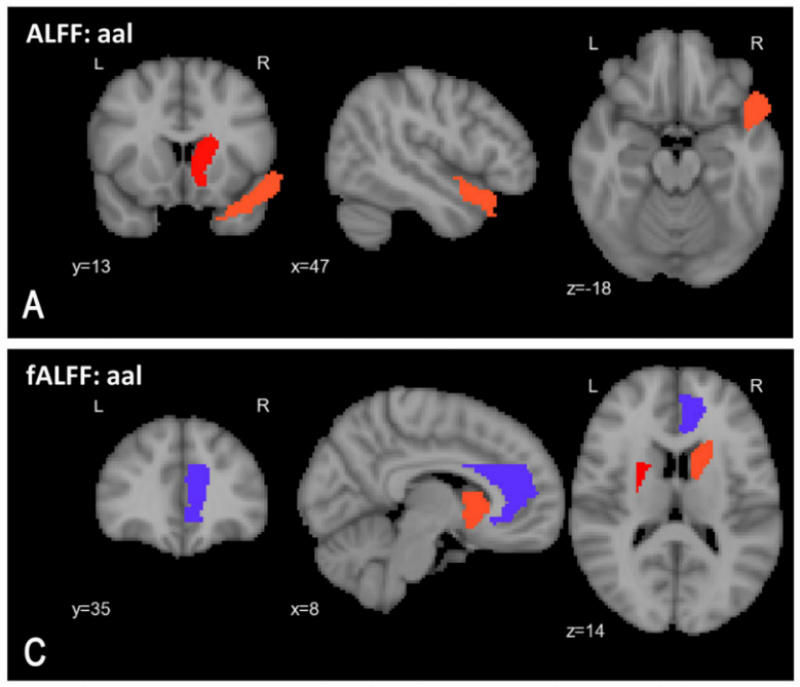
(From left) Computing scientists Russ Greiner and Sunil Kalmady worked with psychiatry professor Andrew Greenshaw to improve the accuracy of an AI-based diagnostic tool for schizophrenia. The program can predict with 87 per cent accuracy whether a patient has the illness by analyzing a brain scan. (Photo: Karim Ali)
The boundaries of artificial intelligence techniques are continually being advanced to improve our ability to interpret complex medical imaging results and diagnose diseases. And now, a new tool developed by University of Alberta researchers diagnoses schizophrenia from patient brain scans-a diagnosis that has historically relied on subjective data of patient experiences, rather than read from scans.
The study brought together campus expertise in two key areas: machine learning and psychiatry. Sunil Kalmady, lead author on the study and a postdoctoral fellow at the University of Alberta, explains the traditional difficulty in diagnosing the disease, and how machine learning was able to present a solution.
"Schizophrenia is characterized by constellation of symptoms that might co-occur in patients. Two individuals with the same diagnosis might still present different symptoms," said Kalmady. "This often leads to misdiagnosis. Machine learning, in this case, is able to drive an evidence-based approach that looks at thousands of features in a brain scan to lead to an optimal prediction."
The result is EMPaSchiz (Ensemble algorithm with Multiple Parcellations for Schizophrenia prediction), a model that has been trained on scans from many patients diagnosed with schizophrenia.
Kalmady worked on the tool under the supervision of both Russ Greiner, professor in the Department of Computing Science, and Andrew Greenshaw, professor and associate chair in the Faculty of Medicine and Dentistry'sDepartment of Psychiatry.
"Machine learning provides a set of tools that can use that existing scan information to produce the classifier we want: a tool that, given a scan of a person's brain, can predict whether that person has schizophrenia," said Greiner. "Moreover, there are ways to estimate how accurate this tool will be and how often it will provide the correct diagnosis."
When put to the test, EMPaSchiz was able to identify the disease in new scans with 87 per cent accuracy, outperforming existing AI models in identifying the disease.
EMPaSchiz is also one of the first machine learning tools trained exclusively on data from patients who aren't yet undergoing drug treatment-which could make it more valuable in the early stages of diagnosing the illness.
Machine learning on the brain
Artificial intelligence and machine learning techniques hold particular promise for complex fields like that of mental health.
"Mental health disorders are highly complex in terms of causes and manifestation of symptoms," said Greenshaw. "Machine learning and future AI are approaches that enable a multi-dimensional, data-driven inroad that captures the level of complexity and objectivity that we need to unravel the wicked problems of understanding mental illness."
EMPaSchiz also shows the potential of machine learning to develop accurate computing science tools to interpret a situation where there are many variables at work-a field in which Edmonton and the University of Alberta are leading players.
"Machine learning is a powerful and appropriate tool to use in situations like this," explained Greiner. "Here, no one knows which combination of features will make the best predictor. And critically, there is already a database of training samples identified by skilled physicians. This has already lead to successful AI-driven systems by researchers around the world, including right here on campus and in our lab."
The paper, "Towards artificial intelligence in mental health by improving schizophrenia prediction with multiple brain parcellation ensemble-learning," was published in NPJ Schizophrenia (doi: 10.1038/s41537-018-0070-8).
Want to find out more about the artificial intelligence and machine learning research going on at the University of Alberta? Check out the Faculty of Science artificial intelligence hub to learn more.
